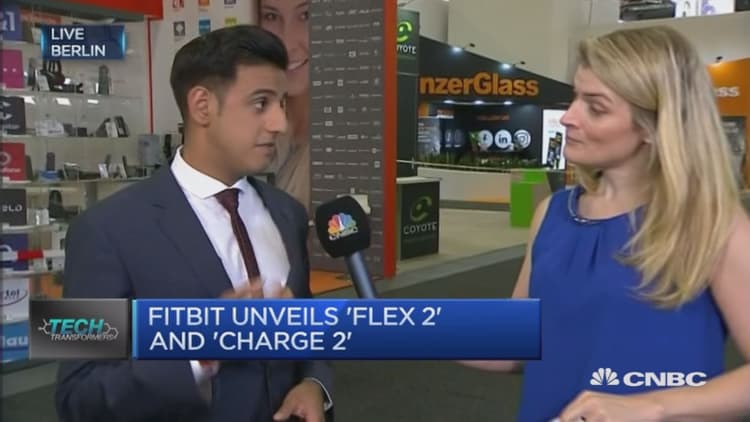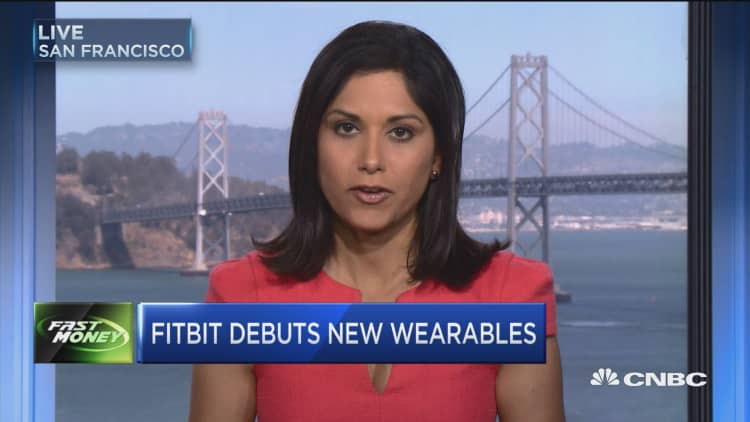


The EU's demand that Ireland must claw back 13 billion euros ($14.5 billion) in taxes from Apple, has not affected Fitbit's ambition to expand in Europe, the chief executive told CNBC on Friday, just days after the wearables maker opened a regional headquarter in Dublin.
The European Commission's (the executive arm of the EU) ruling came earlier this week and sparked backlash from Apple's CEO Tim Cook who dubbed the demand "total political crap" that's "completely unfair". Apple has its European headquarters in Cork, Ireland.
But the Apple issue has not stopped fitness tracker and smartwatch maker Fitbit from expanding into Europe, the Middle East and Africa (EMEA), using Ireland as a base. On Wednesday, Fitbit opened its EMEA headquarters in Dublin.
"The tax situation is just one of many inputs into our decision making process for opening a new office. For us, really Dublin and Ireland has all been about the talent and other aspects to (a) favorable business climate," James Park, CEO of Fitbit, told CNBC in an interview at the IFA consumer electronics show in Berlin.
"So we've doubled our staff there in the past year, we're going to go to 50 by the end of the year, and hopefully 100 by the end of next year and the Apple ruling really doesn't affect those plans for us," he added.
In the second quarter of 2016, Fitbit saw revenues in Europe rise 150 percent year-on-year. The Dublin office will house the strategic business functions for the region, including senior management roles, sales, marketing, operations, finance and customer support staff.
New software ahead?
Earlier this week, Fitbit announced two new devices - the Charge 2 and Flex 2 - which are upgrades of existing models. But Fitbit's dominance in the wearables market has been challenged by players such as Apple and Xiaomi. It's market share in the first quarter stood at 24.5 percent, down from the 32.6 percent in the same period last year, according to research analysis firm IDC. And shares of Fitbit are down nearly 50 percent year-to-date.
But Fitbit has shipped over 48.7 million devices globally and with a large install base, the company has opportunities to monetize its users through software and the data it holds. Recurring revenues from software could be key to the company's future growth.
"I think a lot of it is going to be around very personalized guidance and coaching, I think especially around health and fitness, people are always unsure what to do and they are willing to pay for advice to do that. And for us we have a lot of data along with the right type of intelligent software, I think we can really give people really meaningful health outcomes," Park said.
He also said that Nintendo's "Pokemon Go" showed appetite for apps that combined gaming and fitness.
When asked by CNBC if the company will be releasing any new apps in these categories soon, Park said Fitbit is "actively working on it".





